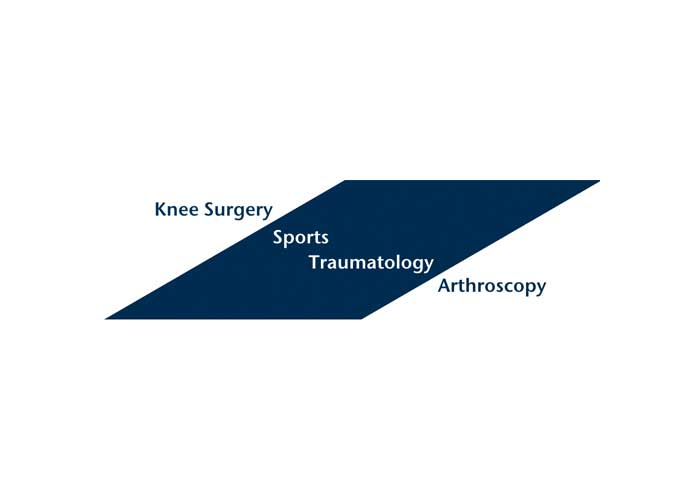Medial Patellofemoral Ligament (MPFL) Injury Specialist

Are you an athlete who participates in sports that involve pivoting such as basketball, racquetball, tennis and football. If so, you may be at risk of sustaining an MPFL injury. When the patella dislocates, it tears the MPFL structure on the inside of the knee which leads to recurrent patellar instability. Medial Patellofemoral Ligament (MPFL) Injury Specialist, Doctor Benedict Nwachukwu provides diagnosis as well as surgical and nonsurgical treatment options for patients in Manhattan, New York City, NY who have sustained an MPFL injury. Contact Dr. Nwachukwu’s team today!
What is the medial patellofemoral ligament (MPFL)?
The medial patellofemoral ligament (MPFL) is a knee structure that holds the patella (kneecap) in place on top of the femur (thigh bone). Similar to a very strong rubber band, the ligament has an elastic-like quality that helps stabilize the kneecap as the knee moves. The job of the MPFL is to keep the kneecap from moving or dislocating to the outside of the knee while keeping the kneecap centered in the groove on the femur when moving. The MPFL runs from the femur to the middle of the underside of the patella. Dr. Benedict Nwachukwu specializes in treating medial patellofemoral ligament injuries, helping patients in Manhattan, New York City and the surrounding New York boroughs recover from an injury to the MPFL.
How does the MPFL become injured?
The knee joint is a complex system of bone, tendons, articular cartilage and ligaments that allow it to handle a great amount of stress during daily and athletic activities. The medial patellofemoral ligament plays an important role in kneecap stability by attaching the patella to the femur. When the patella dislocates, it tears the MPFL structure on the inside of the knee. This type of injury can lead to recurrent patellar instability. MPFL injuries can occur from sporting events that involve pivoting such as basketball, racquetball, tennis and football. A medial patellofemoral ligament injury can also be the result of weak leg muscles or an underlying knee abnormality that increases the risk for a kneecap dislocation.
What are the symptoms of a medial patellofemoral ligament injury?
Symptoms of an MPFL injury include:
- Knee instability or the feeling that it will “give way”
- Knee pain while sitting
- Stiffness in the knee
- Catching sensation in the knee joint when straightening or bending the leg
- Swelling in the knee after activity
- Cracking or crunching sounds when the knee is moved
How is an injury to the MPFL diagnosed?
Dr. Nwachukwu will obtain a thorough medical history, including symptoms leading up to your visit. Prior dislocations or subluxations will be discussed and he will move the knee to test range of motion, stability and strength. X-rays and an MRI scan are useful diagnostic tools to determine the extent on the injury and if there is additional damage.
How is an MPFL injury treated?
Non-surgical Treatment:
Medial patellofemoral ligament injuries can, in the majority of circumstance, be treated without surgery. If the patella dislocation was minimal, without additional injury, or if the patient has a normal patellar height when injured, surgery may not be needed. Dr. Nwachukwu may prescribe the following:
- Rest
- Knee Brace
- Physical Therapy
- NSAIDs (non-steroidal anti-inflammatory drugs)
Younger patients who have dislocated their kneecap previously, or in patients who have an abnormal patellar height, such as patella Alta (high-riding kneecap) surgery may be necessary. The risk for recurrent dislocations is greater for these patients and it is important to see Dr. Nwachukwu, who is a specialist in MPFL injuries and their treatment.
Surgical Treatment:
The goal of surgical treatment for a medial patellofemoral ligament injury is to restore knee stability, regain range of motion and to return patients to sport and other activities they love. Dr. Nwachukwu may use one of the following treatments for an MPFL injury:
- MPFL Reconstruction: Most common treatment for this injury, involves reconstructing the ligament.
- Lateral Retinacular Lengthening: Releasing or lengthening the fibrous tissue on the outside of the kneecap to place the patella in a better position.
- Tibial Tubercle Osteotomy: A surgical procedure to improve alignment of the patella. This is performed by changing the insertion point of the patellar tendon on the tibia.
- Trochleoplasty: reshaping the distal aspect of the femur to stabilize the patellofemoral joint.
What is the difference between an MPFL reconstruction and an MPFL Repair?
Medial patellofemoral ligament reconstruction is reserved for patients who have experienced a complete tear of the ligament that holds the kneecap securely on groove in the femur. During this procedure, Dr. Nwachukwu replaces the injured ligament with a tendon, taken from the patient’s hamstring (autograft) or donor tissue, (allograft) and creates a new ligament. MPFL reconstruction has excellent results when performed properly and can be done on patients of all ages.
An MPFL repair does not replace the torn ligament and was traditionally performed before MPFL reconstruction became popularized. Given the strong evidence in favor of reconstruction, Dr Nwachukwu will preferentially perform a reconstruction over a repair for a torn MPFL.
For more information on a medial patellofemoral ligament (MPFL) injury and the treatment options available, please contact the office of Benedict Nwachukwu, MD, orthopedic knee specialist serving Manhattan, New York City and the surrounding New York boroughs.


